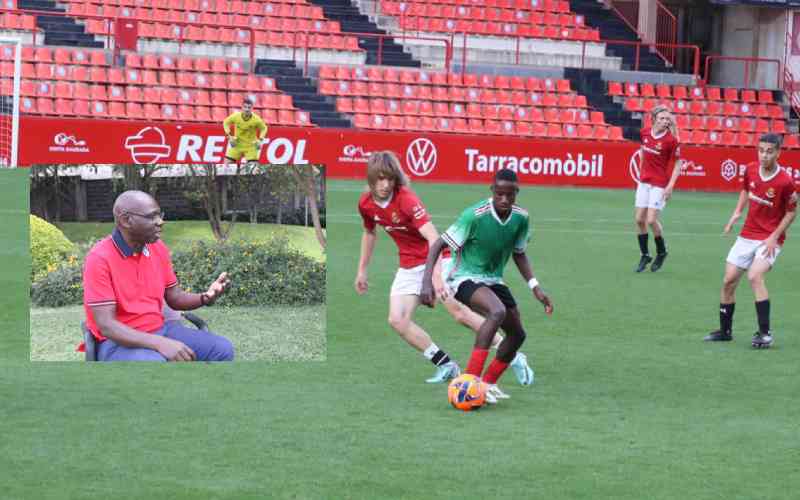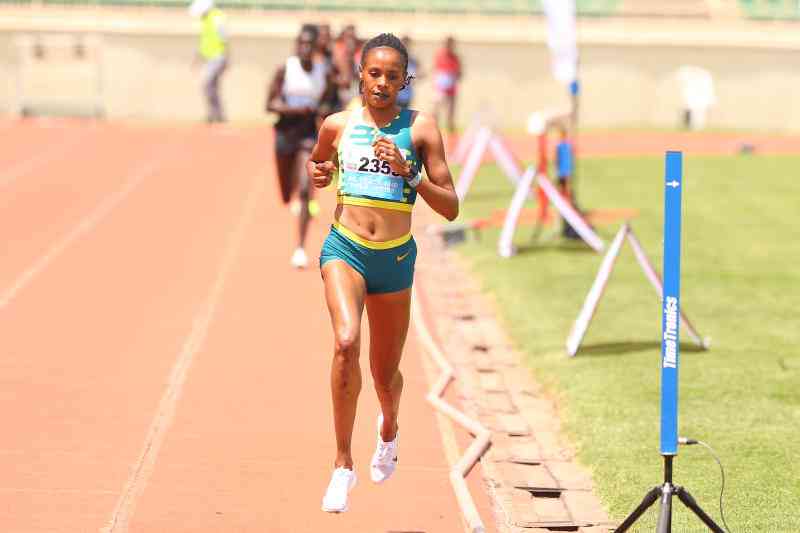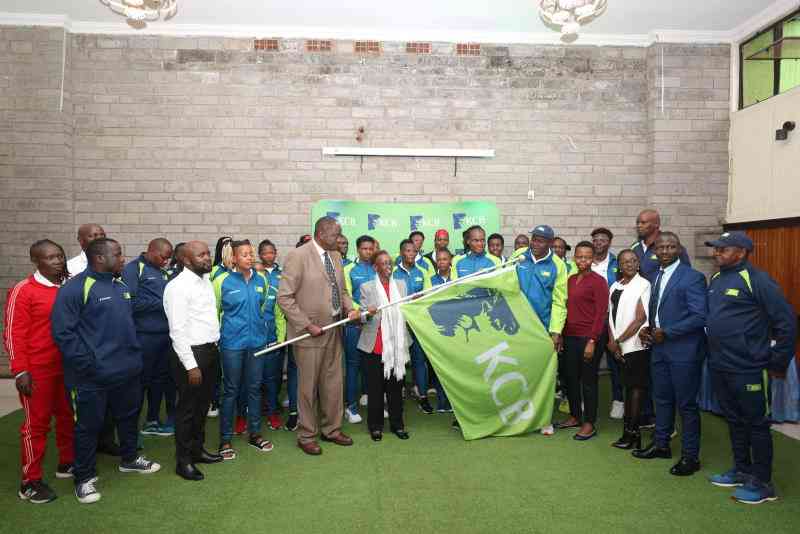By Joe Kiarie
Adopt sport science or forget about gold medals in major international events. This is the warning by sport scientists to Kenyan athletics officials, as the dominance of our athletes inexplicably wanes.
Over the past 10 days, millions of Kenyans have nursed heartaches as medals bizarrely eluded the grip of our famed world-beaters at the London Olympics.
In what is fast becoming a norm, the athletes have been commanding the long and middle-distance races from the gun, only for their rivals to smoke them with a devastating finishing kick with under 200m to go.
This poor show has been blamed on a cocktail of factors, among them internal strife, poor tactics, lack of teamwork, and burnout due to participation in multiple international events.
But with Kenyan runners being constantly pipped to podium finishes in the homestretch after leading their rivals for miles, Geoffrey Kimani, a speed and conditioning trainer, states that failure to incorporate science in training is proving to be Kenya’s main undoing.
He blames officials for overdependence on raw talent and untrained coaches, noting that most modern-day conquerors are products of a greater understanding of biomechanics of sport movement, advanced training techniques, proper nutrition and advanced psychological support.
The US-trained sport scientist reveals that a faultless finishing kick is now the main difference between gold and losing and notes that this kick can only be induced via the marriage of science and sweat of the brow.
He says Kenya’s rivals are easily beating us after incorporating scientifically proven training regimens to boost their finishing and recovery.
“Most modern-day track conquerors are made and not born. In the women’s 10,000m for instance, how do you explain our girls matching the Ethiopians stride for stride for 24 laps, only to trail by more than 50m in the last lap?
That shows our rivals have worked on something we did not work on.
“The fact that they can shift gears at the end of a gruelling endurance event is proof that apart from just pounding the roads and hills in search of prowess in endurance, they have also incorporated speed and power programmes into their training regimens hence making use of the fast twitch muscle fibres,” he says.
Categories of immunity
Kimani says strength training is an area that can no longer be ignored since all top runners now have endurance and it is the kick that separates a gold medallist from the rest in a highly competitive environment.
He says an all-inclusive and event specific strength programme also comes in handy in ensuring an athlete maintains proper running form even with the onset of fatigue.
Kimani laments that our runners are yet to learn the basics when it comes to the ability to move arms and legs in synchrony and in the proper direction, an aspect he terms crucial in locomotion, particularly running.
The trainer says most athletes are obliviously losing races due to basic energy-sapping errors such as running with a clinched fist and incorrect body movements.
He gives the example of women’s 800 metres runner Janeth Jepkosgei, who she notes can rule the world in the distance if she embraces science in her training.
“Janeth has speed but struggles too much towards the tape. There is a lot of lateral movement of the upper body, with her shoulders moving from side to side during the kick.
“This movement slows her down and can make the difference between a gold medal, a record and a fourth place finish. She needs specialised training to work on this aspect of her running,” he explains.
Kimani says these errors have seen Kenyans play into the hands of the rivals, who he notes have limited blunders and have also mastered the art of relaxation under pressure.
“Most top Ethiopians track stars for instance have somewhat bouncy and effortless stride patterns characterised by loose facial muscles and a smooth economical running flow. Like the leading sprinters in the world, they look very relaxed whilst at full speed,” he states. This, he avers, is achieved by transforming strength into power through prescription of event specific exercises known as plyometrics.
Kimani says while Kenyans are renowned as endurance kings, athletes such as Britain’s Mo Farah, who won the gold in the men’s 10,000m, have been boosting their endurance by training in altitude in Iten, Kenya and then engaging in specialised training, a move he says has helped them comfortably edge out Kenyans.
“That is why we now direly need biomechanics specialists to analyse the running techniques, weaknesses and strengths of our athletes,” he states.
The former sprinter notes that due to our predictability and poor tactics, many countries are now participating and winning races they previously avoided due to Kenya’s dominance.
Indeed, Galen Rupp of the US finished strongly behind his training partner Farah to clinch a silver medal in the 10,000m in London, breaking a 48-year drought in the race for the Americans. Rookie Bedan Karoki was Kenya’s best-placed finisher in fifth place.
In the men’s 1,500m, American Leonel Manzano finished strongly to take silver, the first medal for the US in the race since 1968, while Kenya failed to get a medal for the first time in 20 years. The first Kenyan finished a shocking seventh as Algeria’s Taoufik Makhloufi sprinted away with the gold.
Categories of immunity
Kimani at the same time accuses money-minded agents of breaking down the teamwork that was integral to Kenya’s past dominance.
Until the turn of the millennium, the country’s celebrated athletes such as Daniel Komen, Moses Kiptanui, and Noah Ngeny prospered under the late Kim McDonald, an astute agent who set up a training camp in Teddington, West London, where his athletes lived and trained in the summer.
With glory as the main pillar, McDonald would comfortably determine who was to win a race and who was to be sacrificed as part of the team tactics. But Kimani says this is part of history as barely all our athletes now have personal agents who do not want to play second fiddle.
“It is obvious that teamwork is no longer part of our races since almost every athlete has an agent who wants his client to be an Olympic and world champion. There is no more room for sacrifices and it is now a battle of the agents and the sponsor companies as opposed to battle with other countries,” he states.
He says this has given the more united Ethiopians an edge over Kenya, giving the example of the women’s 10,000m race where teamwork proved supreme as Worknesh Kidane played the rabbit as Tirunesh Dibaba outfoxed Kenyans in London.
“Once you are selected to the national team in Ethiopia, you go to camp irrespective of who you are. They are also very strict in team selection. In Kenya, we have become so individualistic and this is a reflection of who we are as a society,” he states.
Apart from specialised training, Kimani says most Kenyan runners have also ignored a specialised diet and nutrition, noting that most world-beaters now use dietary supplements to help boost recovery among other benefits.
 The Standard Group Plc is a multi-media organization with investments in media
platforms spanning newspaper print operations, television, radio broadcasting,
digital and online services. The Standard Group is recognized as a leading
multi-media house in Kenya with a key influence in matters of national and
international interest.
The Standard Group Plc is a multi-media organization with investments in media
platforms spanning newspaper print operations, television, radio broadcasting,
digital and online services. The Standard Group is recognized as a leading
multi-media house in Kenya with a key influence in matters of national and
international interest.
 The Standard Group Plc is a multi-media organization with investments in media
platforms spanning newspaper print operations, television, radio broadcasting,
digital and online services. The Standard Group is recognized as a leading
multi-media house in Kenya with a key influence in matters of national and
international interest.
The Standard Group Plc is a multi-media organization with investments in media
platforms spanning newspaper print operations, television, radio broadcasting,
digital and online services. The Standard Group is recognized as a leading
multi-media house in Kenya with a key influence in matters of national and
international interest.






